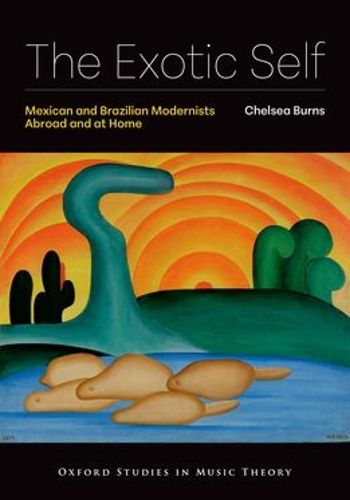Readings Newsletter
Become a Readings Member to make your shopping experience even easier.
Sign in or sign up for free!
You’re not far away from qualifying for FREE standard shipping within Australia
You’ve qualified for FREE standard shipping within Australia
The cart is loading…






When Europeans and North Americans listen to music by Latin American composers, what do they hear? What, for that matter, do these composers' compatriots hear? The answer, historically, has been the sound of the nation. Scholars, critics, patrons, and audiences have often suggested that Latin American music either does or ought to reflect an aesthetic supposedly inherent in Latin American cultures and even bodies.
Marshaling historically informed close readings of musical text, The Exotic Self reveals the voluminous meanings of works historically pigeonholed by identity-driven assumptions. Chelsea Burns focuses on Brazilian and Mexican modernists from 1920 to 1940, arguing that the national sound of Heitor Villa-Lobos, Carlos Chavez, Silvestre Revueltas, and others is as readily traceable to market pressures as it is to artistic commitments. These composers embraced, knowingly and sometimes reluctantly, exoticist stereotypes of Indigeneity and Blackness as the price of access to metropolitan audiences. At home, intellectuals and politicians also demanded sonic fantasies of "folk" life, here understood as the authentic voice of a national culture rivaling those of the global north.
Recognizing that the authentic and the exotic are two sides of the same tarnished coin, Burns analyzes the works of Mexican and Brazilian modernists anew. What emerges are singular artists with much to say beyond the framework of identity.
$9.00 standard shipping within Australia
FREE standard shipping within Australia for orders over $100.00
Express & International shipping calculated at checkout
When Europeans and North Americans listen to music by Latin American composers, what do they hear? What, for that matter, do these composers' compatriots hear? The answer, historically, has been the sound of the nation. Scholars, critics, patrons, and audiences have often suggested that Latin American music either does or ought to reflect an aesthetic supposedly inherent in Latin American cultures and even bodies.
Marshaling historically informed close readings of musical text, The Exotic Self reveals the voluminous meanings of works historically pigeonholed by identity-driven assumptions. Chelsea Burns focuses on Brazilian and Mexican modernists from 1920 to 1940, arguing that the national sound of Heitor Villa-Lobos, Carlos Chavez, Silvestre Revueltas, and others is as readily traceable to market pressures as it is to artistic commitments. These composers embraced, knowingly and sometimes reluctantly, exoticist stereotypes of Indigeneity and Blackness as the price of access to metropolitan audiences. At home, intellectuals and politicians also demanded sonic fantasies of "folk" life, here understood as the authentic voice of a national culture rivaling those of the global north.
Recognizing that the authentic and the exotic are two sides of the same tarnished coin, Burns analyzes the works of Mexican and Brazilian modernists anew. What emerges are singular artists with much to say beyond the framework of identity.